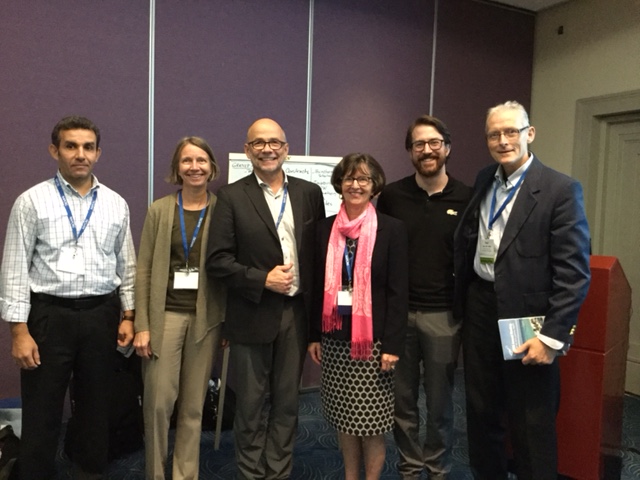By Gunnar Akner

www.gunnar-akner.se
Since aging is the most important risk factor to develop disease(s) and/or injuries, multimorbid elderly people dominate in all parts of the health care system: in hospitals, in primary care and in communal care for the elderly. The multimorbidity phenotype among elderly people is very complex and in combination with great variation on psychosocial context, there are not two multimorbid elderly people alike. This diversity has fundamental consequences for the health care system:
1. Analysis, evaluation, management/care and follow-up of multimorbid elderly people must be
individualized and based on integrated and targeted multi-domain thinking. National guidelines are not very helpful in the management of multimorbidity, that requires simultaneous health problem specific and integrated management. A strict adherece to guidlines will impose strong risks to multimorbid elderly.
2. Such individualization requires that the clinical working conditions support qualified management over time. Key elements regard for example team composition (type and number of team-members), team working methods and a medical record that is based on the individual´s health problems, how they have developed over time including the effects of various treatments/care.
3. The high prevalence of multimorbid elderly people calls for a shift in the education and training of physicians and health care staff, and should have sa strong base in Geriatric Medicine.
4. Clinical treatment research methodology resides heavily on the randomized controlled trial (RCT). The RCT is based on the assumption of treating homogenous groups av patients with well defined interventions. In multimorbid elderly people, the heterogeneity is profound regarding both the health problems, treatment methods and outcomes. Thus, there is a strong call to develop complementing research methods, for example the n=1 methodology.
These aspects are discussed more in detail in a recent overview article in Clinicak Geriatrics (1).
Similar aspects of multimorbidity in elderly will be discussed during the 3-day international conference (Berzelius-symposium)”Personalized Geriatric Medicine” in Stockholm, Sweden, August 20-22, 2014 organized by The Swedish Society of Medicine, in cooperation with European Union Geriatric Medicine Society (EUGMS), the Swedish Society of Geriatric Medicine, Karolinska Institutet and the Swedish National Research Council http://www.sls.se/Utbildning/Berzeliussymposier/geriatricmedicine/. President of the organizing committee is professor Gunnar Akner.
World leading researchers and clinicians from Geriatric Medicine and elderly care from USA, Japan, Spain, England, Ireland, Norway, Finland and Sweden will provide state-of-the-art-lectures (see list of participants on the conference website). On each day of the conference, there will be group discussions, where lecturers and participants meet and engage in in-depth discussions around different themes.
We hope the conference will attract researchers, clinicians in Geriatric Medicine and other medical specialities from different professional staff groups, stakeholders and decision-makers, politicians, economists etc with interest to improve the quality of care from the individual elderly patient´s point of view. An application has been made to the EACCME® for CME accreditation of this event.
Reference
1. Akner G. Frailty and multimorbidity in elderly people: A shift in management approach.
Clin Geriat 2013; 21: published online September 23, 2013.
(see website www.gunnar-akner.se, link ”Multimorbidity/frailty”)








